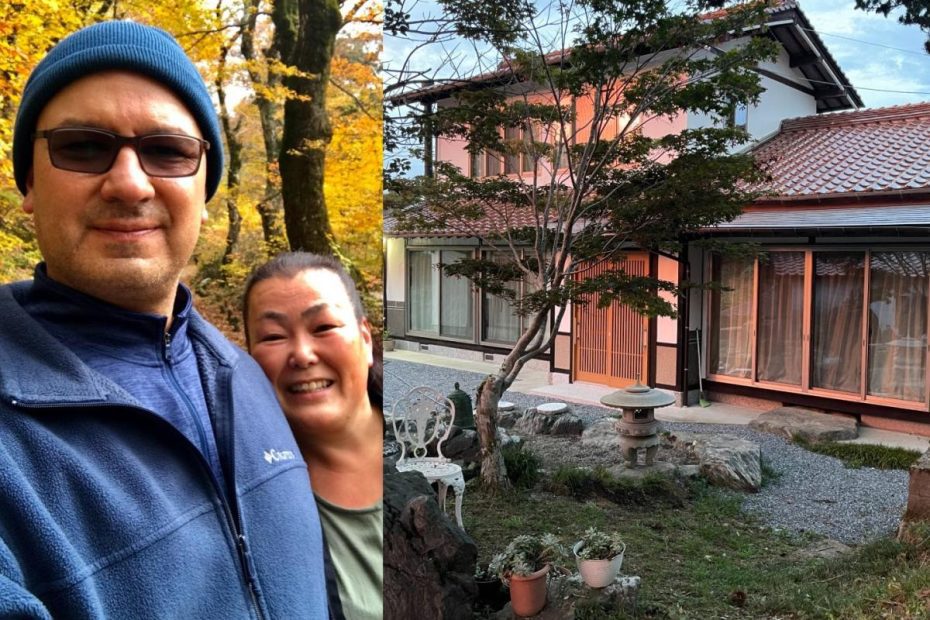-
Lawrence Covian, 53, and his wife moved to Japan from the US in 2017.
-
They bought an abandoned house, or akiya, in the countryside for 5 million Japanese yen, or $35,000.
-
He says his mental and physical health has improved since living in the countryside.
When Lawrence Covian's five-year employment contract expired, he had no interest in returning to the US.
Covian and his wife Chiyoko moved to Japan from North Carolina in July 2017 because of his job with the U.S. government. Their initial plan was to return to the U.S. afterward, but once they got used to their new life, they realized they didn’t want to leave.
“After five years, I liked it here and we decided we were going to stay here no matter what,” Covian told Business Insider.
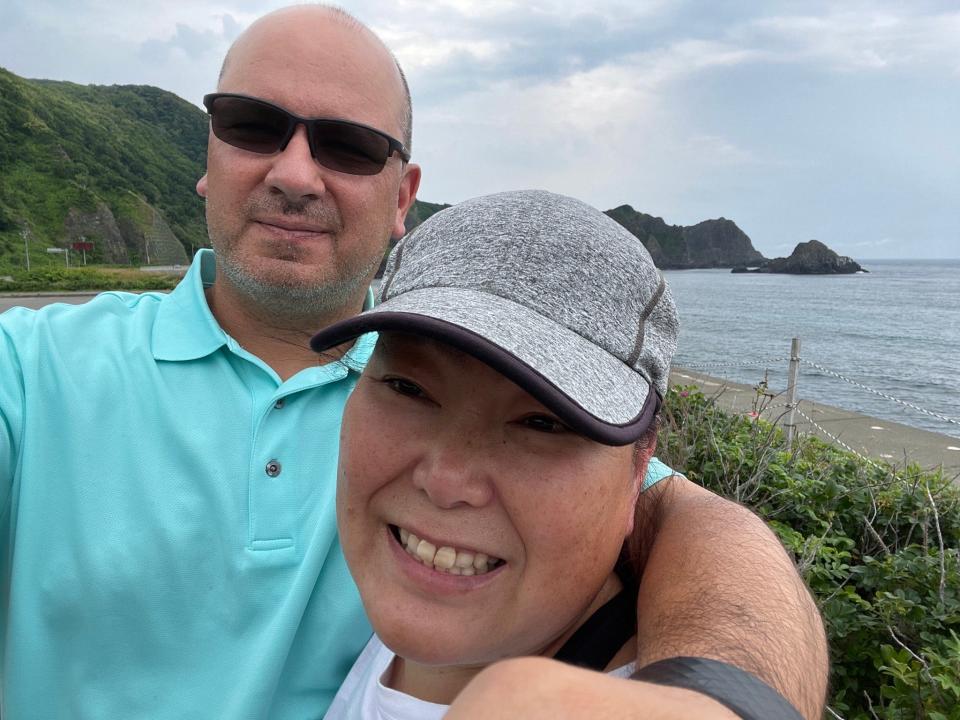

In order to remain in Japan, he decided to continue working as a contractor for the US government.
Around the same time, the couple, who met as young adults in California and have been married for more than 30 years, decided they wanted to settle in the country permanently.
As a lover of old houses, Covian was already interested in the idea of purchasing and renovating one of Japan's 8.5 million abandoned houses, known as akiya, in the countryside.
“I’ve always liked how older homes have more space and character, but it was the lower price points that really drew us to this option,” Covian said.
Choosing an Akiya over a new home
Covian is not the only one drawn to these old, abandoned houses in the Japanese countryside.
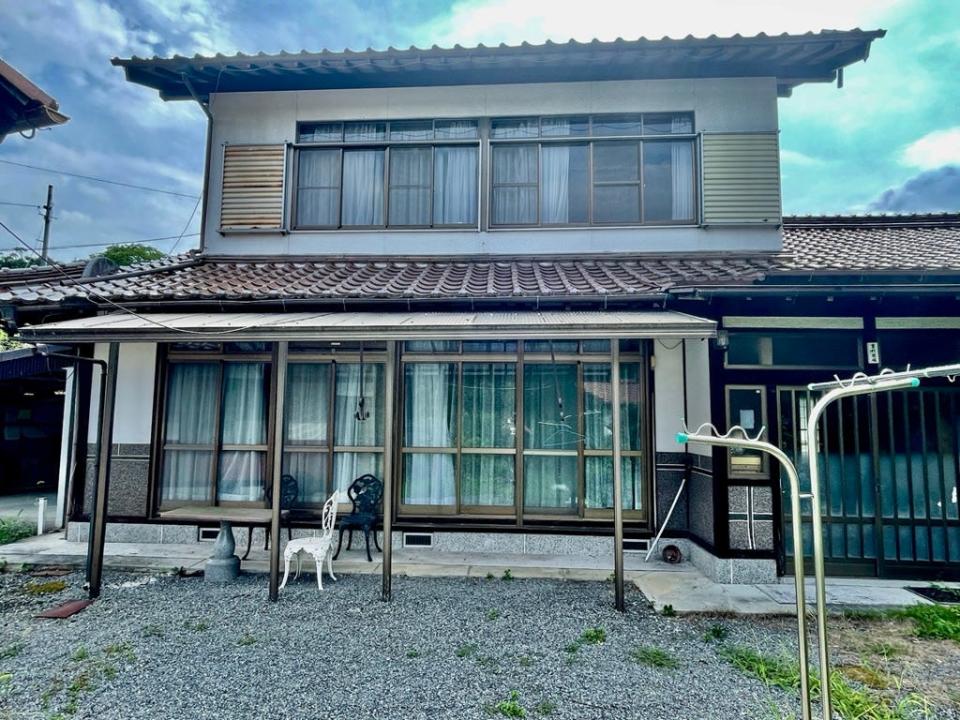

In Japan, a shrinking population and internal migration have left millions of empty homes in rural areas, creating a “ghost town” problem.
But thanks to the low price tag and the lack of restrictions on foreigners buying property, more and more foreigners are choosing to buy these old homes. Many see it as a way to become a homeowner without the same financial stress as buying property in their home country.
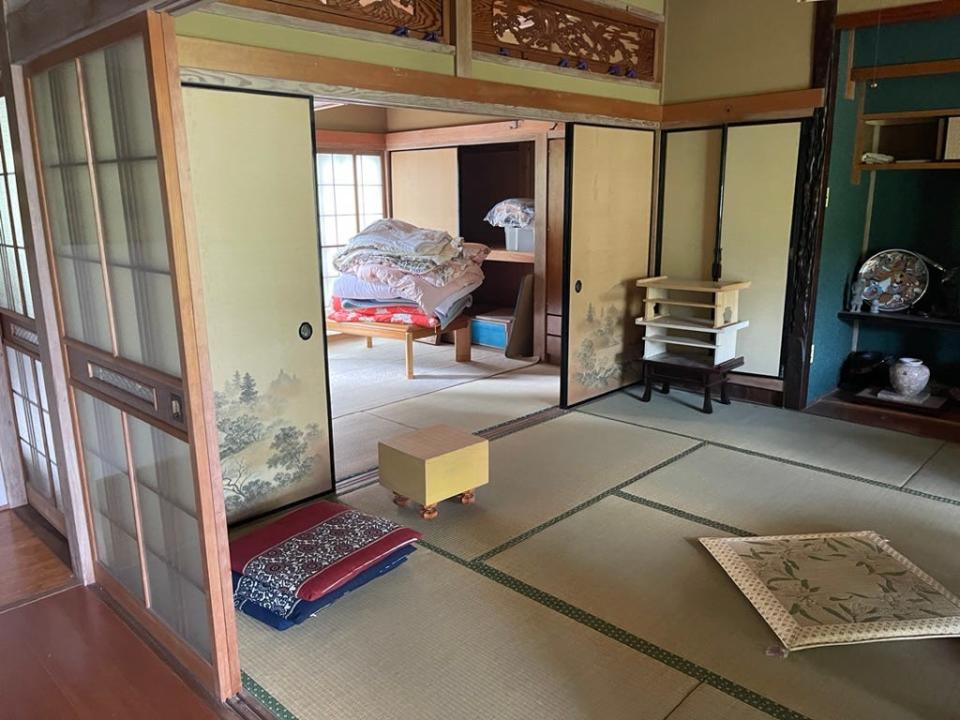

Covian had been in Iwakuni, a city in Yamaguchi Prefecture, for work years ago. The American veteran knew he wanted to stay there because it was close to his workplace.
Iwakuni is located about 32 kilometers from the nearest major city, Hiroshima, and about 640 kilometers from Tokyo.
Years ago, the couple happened upon the nearby town of Miwa while cycling. Covian remembered how much he loved the place, with its beautiful mountain scenery and rice fields.
He decided to focus his search for akiya in the city through an akiya bank, a database maintained by local municipalities for abandoned or vacant houses.
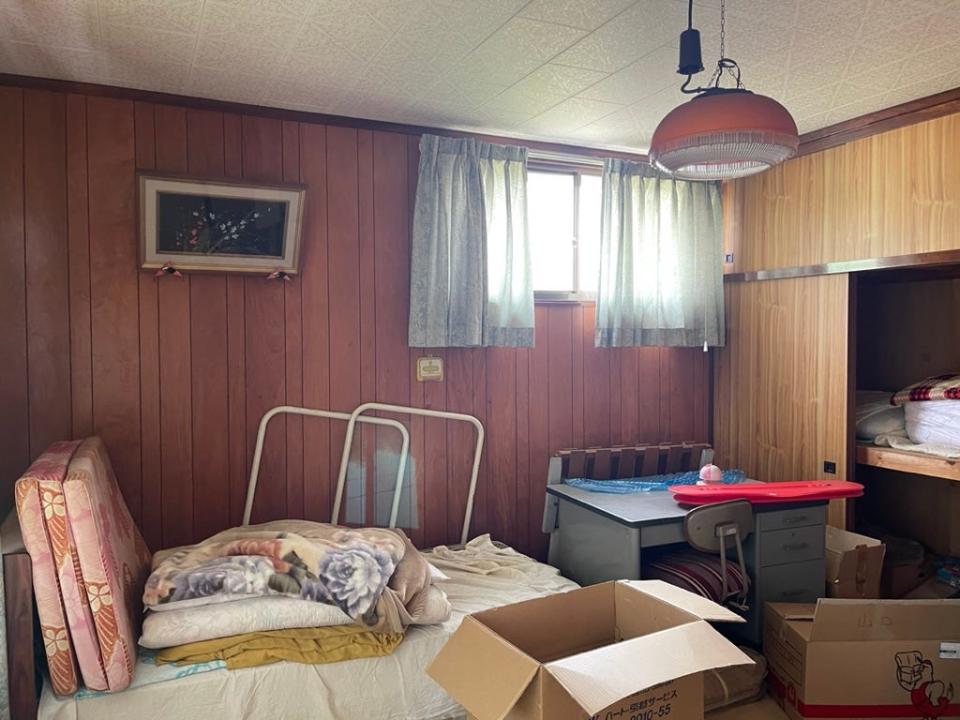

“One became available at a small local brokerage, so we reached out to him through the website,” Covian said.
Viewing the Akiya was an overwhelming experience because of the condition the house was in, he added.
The property had been empty for about five years, with furniture and other household items left behind. Outside, overgrown weeds and vines had taken over the garden.
“My wife and I were excited — but not too excited — because it looked bad and I didn't know a carpenter who could help us with the work,” he said.
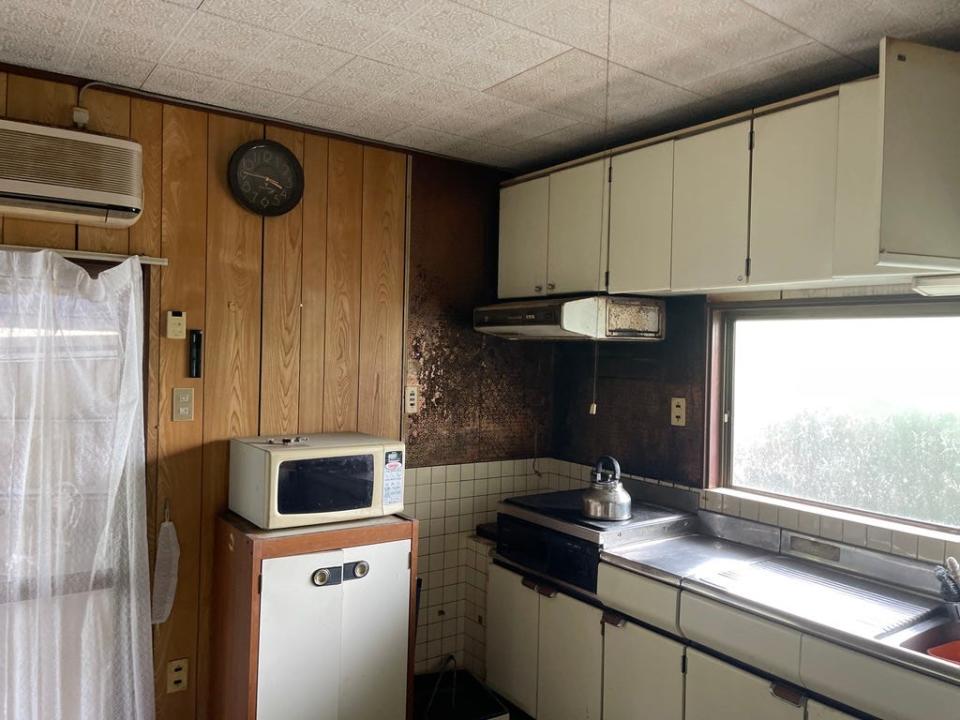

But through a chance meeting with a local cafe owner, the couple met a man who owned a carpentry business nearby.
After viewing the akiya with the carpenter, Covian and his wife decided to purchase the property. The couple paid 5 million Japanese yen for it, or about $35,000, and hired the carpenter to renovate it.
The Akiya was listed for 6 million Japanese yen, but the real estate agent offered the couple 1 million Japanese yen off the asking price if they were willing to clean the house themselves.
“I told them, 'Okay, I'll handle it.' There were beds, sheets, clothes, pots, pans, a lot of personal items, unfortunately, left behind,” Covian said. “I bought one of those little trucks for $1,200, and we pulled it all out ourselves.”
Mixing Japanese and Western design influences
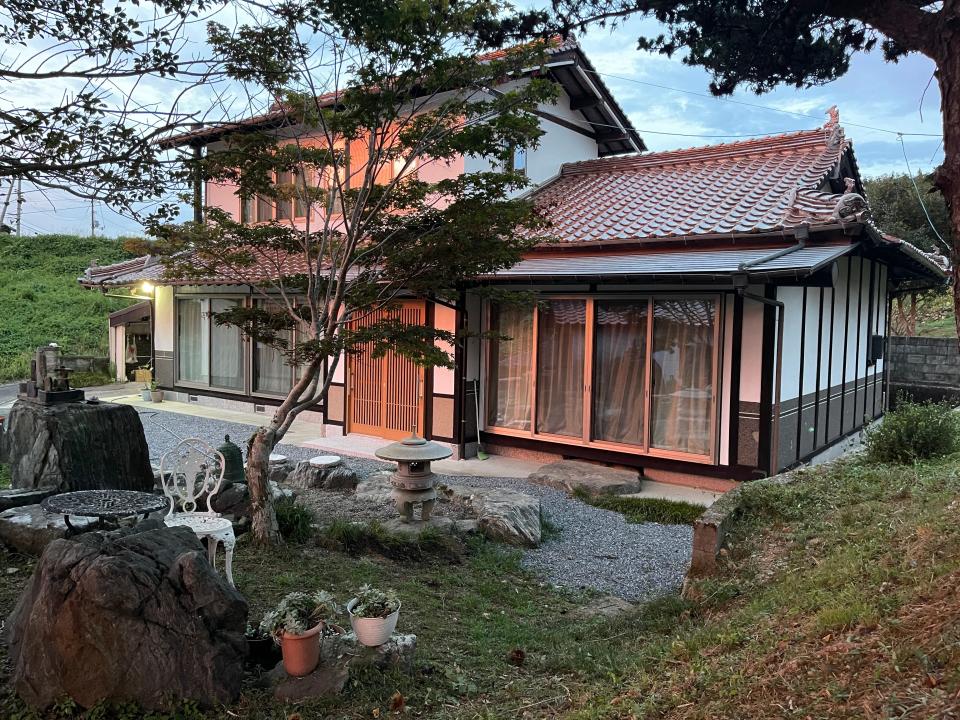

The entire property includes the two-story main house, a guest house, a garage, a storage building, and three-quarters of an acre of land. It is about a 40-minute drive into the mountains from his work site.
The renovated main building combines traditional Japanese and Western elements.
Covian retained the tatami room and the engawa (the small corridor running along the windows) in the house, but also added a pantry and laundry room, which are not often found in traditional Japanese homes.
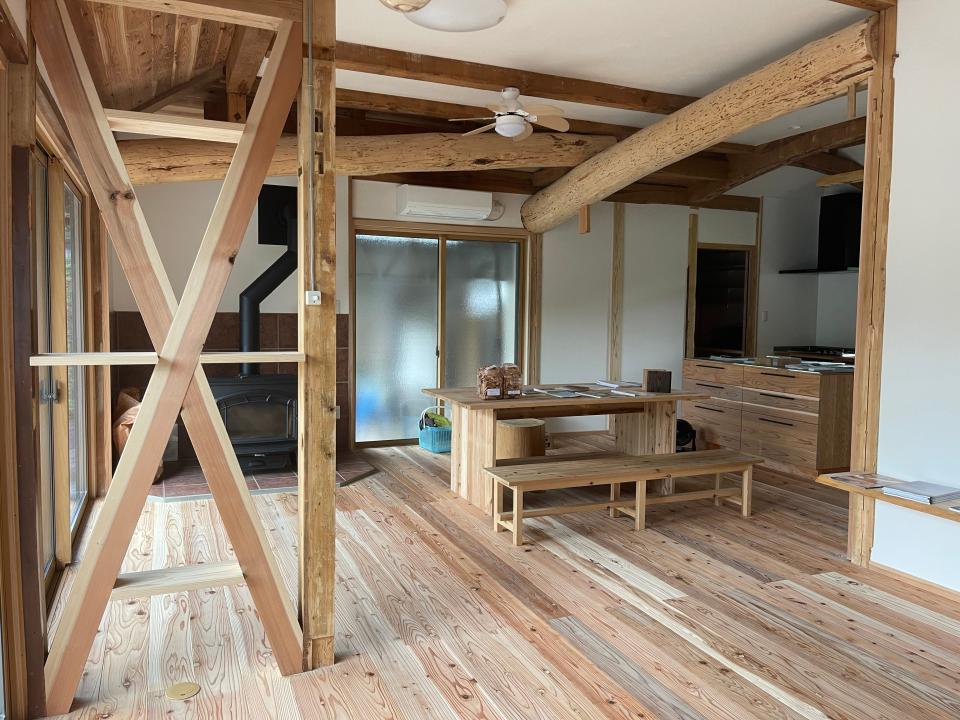

In addition, he did not want any small ledges in the house, except at the entrance.
“I told him I wanted a Roomba that could go through the whole house without getting stuck,” Covian said. “But it wasn't really about the Roomba. It was more in case one day, God forbid, me or my wife were in a wheelchair and we couldn't get out of a room because we have those steps.”
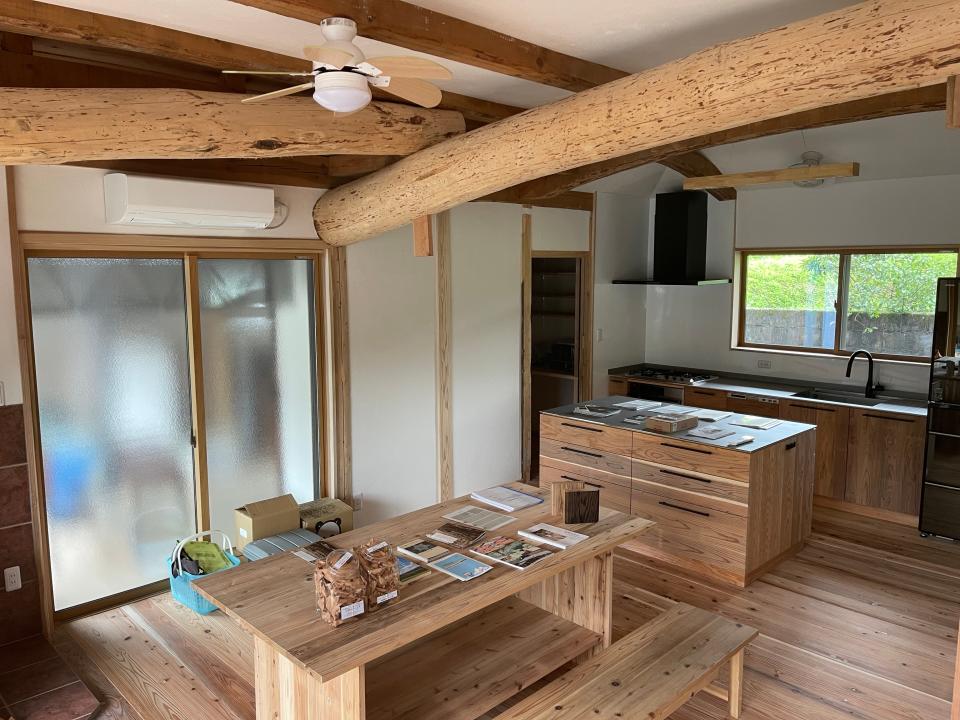

Covian estimates the renovation cost a total of about $230,000. He acknowledges that it’s on the high side compared to what people expect, but he has no regrets.
“There are a lot of things we did that weren’t necessary, so we could have saved a lot of money if we wanted to,” he said, adding that he and his wife wanted the place to be beautiful and comfortable, just as they envisioned it.
With the amount of money they spent, they could have bought a brand new house, but that was never their dream.
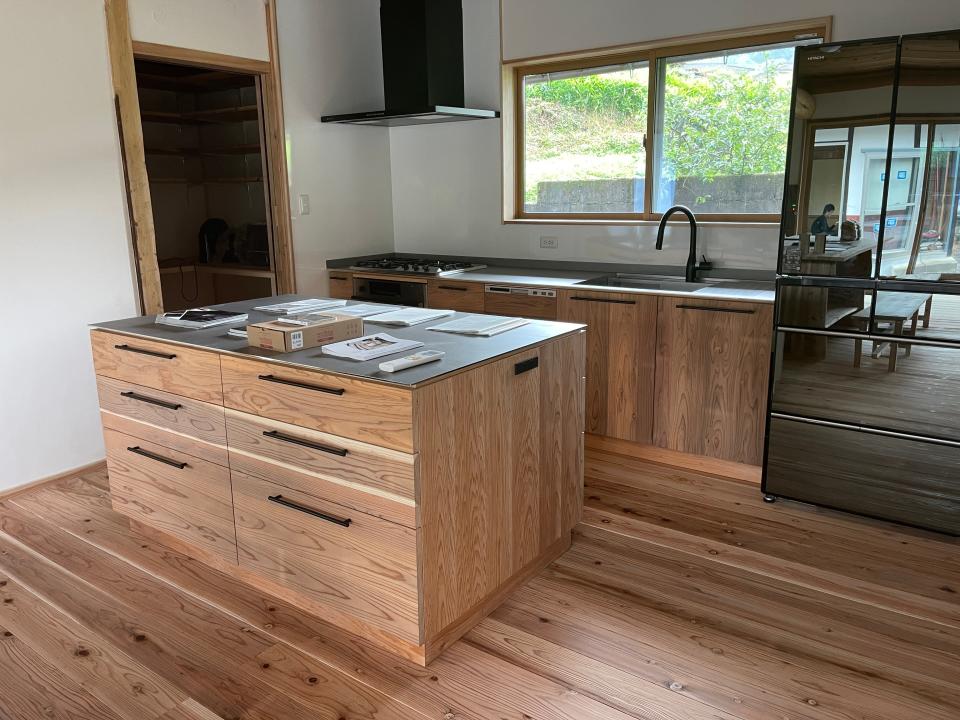

“I don't want any of those new houses. They're little cookie cutters; everything is plastic or vinyl. No character,” Covian added.
Most importantly, the couple can proudly call the renovated Akiya their home. Covian even started a YouTube channel documenting his Akiya journey.
“We used to move every few years, so our walls never got painted, we never hung pictures,” Covian said. “But this is a place I can call mine. It’s ours.”
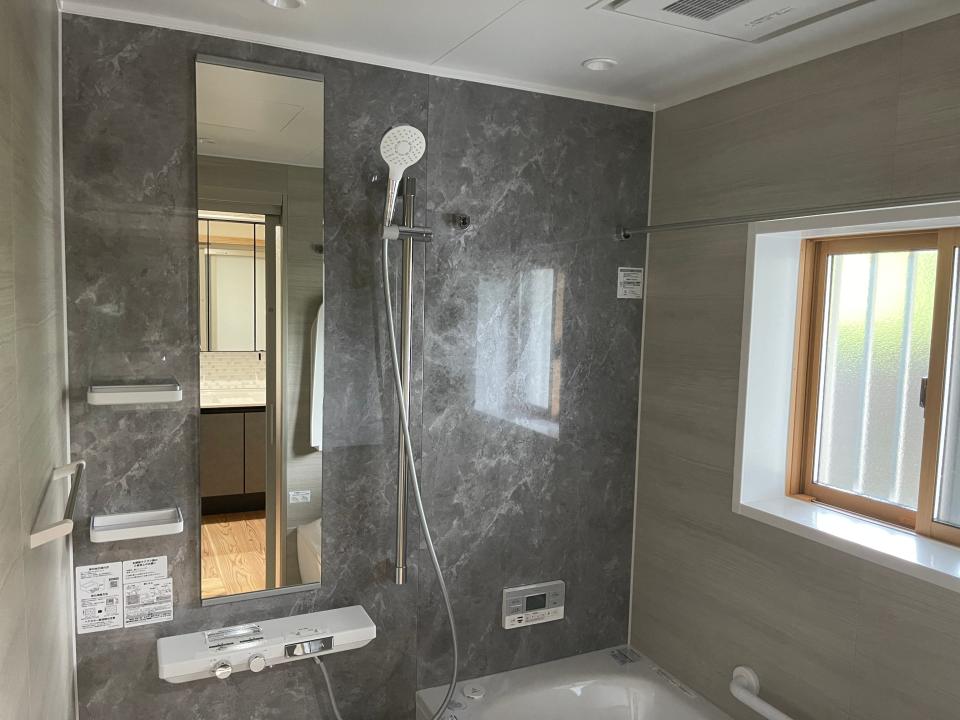

Life in the Japanese countryside
Before moving to Japan, Covian had been to the country a few times to visit his mother-in-law, but those trips were never long enough to explore the countryside.
Even though he has lived in Japan for seven years, every day feels like an adjustment.
Covian regularly takes Japanese language lessons, but he still has difficulty communicating in certain situations.
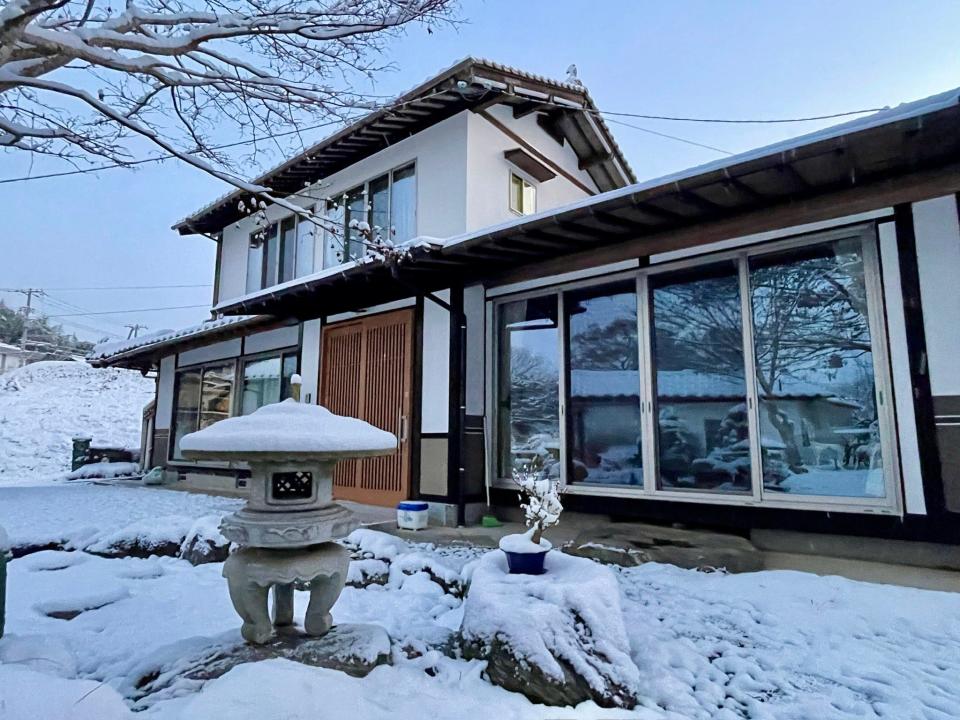

“Everyday life is fine, but for example, I recently had to go to the hospital for a procedure, and the medical terminology and stuff like that, it's just beyond me,” Covian said. “So I have to rely on my wife, and I think that's going to be the case for years to come.”
That said, he loves being in the countryside.
“When I drive up the mountain, I'm at peace. I always joke to my wife that I could spend the whole time here — just me, myself, outside. And I'm perfectly happy,” Covian said. “I don't like going to Tokyo. I don't like going to the big cities. It stresses me out.”
The slower pace of life and the nature around him are also good for his mental and physical health. Life in the Japanese countryside is also very different from the U.S., where it's a “constant rat race,” he said.
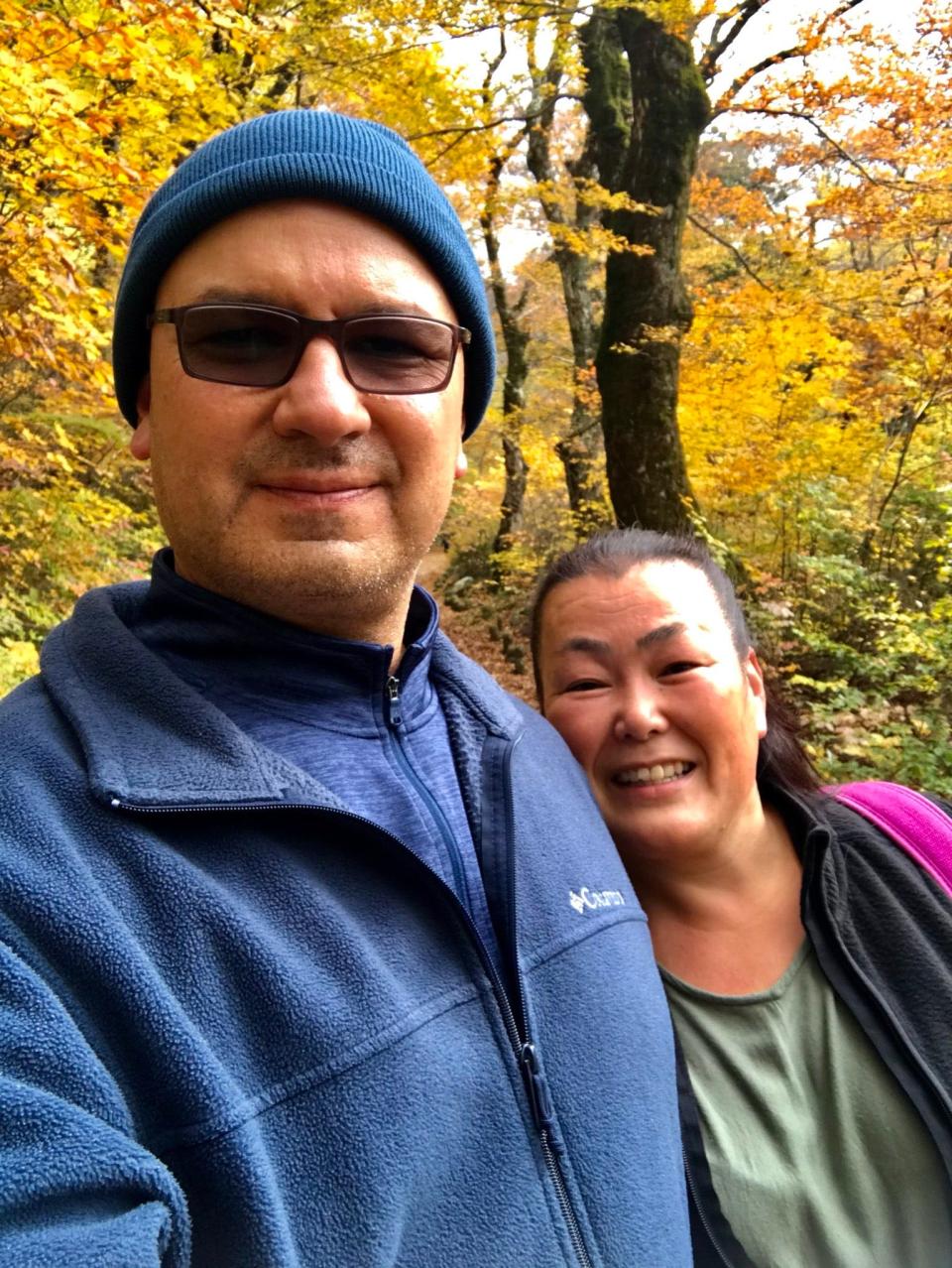

“Of course we like nice things in life, but still, in the United States, you get caught up in keeping up with the Joneses, having the latest car, and nice this and nice that,” Covian said. “Before you know it, you're just constantly working and working with no end in sight.”
Although Covian still works in Japan, he is thinking about traveling around Japan in a camper after his retirement.
“I don't want to be 60 or 70, get sick and later have regrets because I didn't pursue other things that I wanted to do,” he added.
Have you recently built or renovated your dream home? If you have a story to share, please contact me at [email protected].
Read the original article on Business Insider
